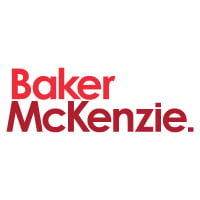
Legal director Colombia, Ecuador and Venezuela | Abbott Laboratories


Natalia Encinales Ariza
Legal director Colombia, Ecuador and Venezuela | Abbott Laboratories
How do you approach managing legal aspects during periods of instability or crises, and how does your legal strategy align with the broader business strategy to ensure the organisation’s resilience?
As legal director during periods of instability or crisis, that in most of the cases are also full of uncertainty, I prioritise various key aspects to ensure effective crisis management and organisational resilience.
Communication: as leader I communicate transparently with my team and my colleagues. Honest dialogues ensure that employees understand the facts and available support and foster a confident environment where they can feel engaged and raise their voice to share innovative solutions to the crisis and its challenges. It is necessary to balance privacy and confidentiality. I also collaborate to manage media control during crises, proper messaging helps protect the organisation’s reputation and legal standing.
Timely risk management: I delve into legal and regulatory matters relevant to the specific crisis and anticipate promptly potential legal challenges that the crises may generate, I escalate them with the potential mitigation plans. As legal director my role is not limited to assessing legal risks, but to cleverly participating as an experienced professional in all assessments and decisions that are strategic for the company. As legal director I should provide timely, true and effective support to patients, consumers, clients, employees and their families.
Adaptability: my legal strategy remains flexible, adjusting to the evolving crisis landscape. I consider the impact of external factors on legal issues, and I try to anticipate as much as possible while keeping calm since crises come with a lot of room for uncertainty.
Compliance: I ensure that crisis management practices align with legal requirements. Compliance with laws and regulations is key to maintaining organisational stability. Training and procedures provide the business with skills and notions that could be significant during crises, and that are of the most relevance, here is the moment to put them into practice and perceive the results of legal preparedness. Legal readiness, communications, risk mitigation and compliance contribute to our ability to navigate crises effectively and continue operations even more strongly.
What are the main cases or transactions you have been involved in recently?
Given the complex economic situation faced by several Latin American countries, I have recently been involved in exploring new businesses and projects that involve significant complexities related to antitrust/competition law and privacy. Additionally, the various authorities addressing the fiscal crisis are exercising their surveillance and control powers incisively. As a result, I have participated in all investigations, even providing information in cases when third parties are the ones investigated.
Throughout these processes, I have also noticed that authorities are becoming increasingly strict. Staying informed and participating in sessions with legal teams from other countries within the organisation has been very helpful in identifying potential trends in these matters and anticipating actions to mitigate future risks. Furthermore, the proposed healthcare reform by the current Colombian government, along with the changes sparked by the debate, has required continuous monitoring on my part and by all stakeholders in the healthcare sector. This helps us understand the new system and anticipate impacts and solutions for patients, clients, and stakeholders in general. In uncertain times such as the one we are facing right now across the region, demands from legal counsel to stay informed and adaptable.
What emerging technologies do you see as having the most significant impact on the legal profession in the near future, and how do you stay updated on these developments?
Definitely, artificial intelligence is one of the emerging technologies that may be having the greatest impact not only in the legal profession but in all areas. Using AI has the potential to help us all work smarter and faster, and to unlock capacity for us to do our best work; from basic tasks like translating a message or summarising email threads or a document to more complex ones. Of course, there are a lot of challenges that need to be addressed, particularly talking about legal scope, you still need to be very careful when to research for legal sources, if the AI could be creative and made up some information that is not real. AI could also present some concerns related to privacy infringement and confidentiality. Talking from a broader spectrum, AI could inherit biases from training data, leading to discriminatory outcomes and it can also present some ethical problems such as how much decision-making power we are delegating to machines. I stay updated not only by receiving training, but using daily the tools at hand, participating in the initiatives or pilots the IT teams lead to find new uses of the AI and of course giving them feedback on any issue I noticed.
How do you prioritise diversity and inclusion within your legal department, and what initiatives have you implemented to foster a more inclusive and equitable work environment?
I prioritise diversity and inclusion making a visible topic of it, improving knowledge, sharing and creating greater awareness, and building a common understanding and language about it. I have led many D&I initiatives, beyond others:
Inclusive communication —setting some rules for our department meetings; external counsel —surveys across our major external counsel to understand how they prioritise D&I; training —training to the regional legal department about unconscious bias and inclusive language; retention of best practices — hiring practices that enables the diverse talent to be retained (beyond others, job descriptions review); networking — actively participating in events from different networks inside the company not only as allies but supporting from a legal knowledge perspective, for instance within the Pride team we present the evolution of laws and regulations across Latin America about topics such as marriage between couples of the same sex, adoption by parents of the same sex, among others.